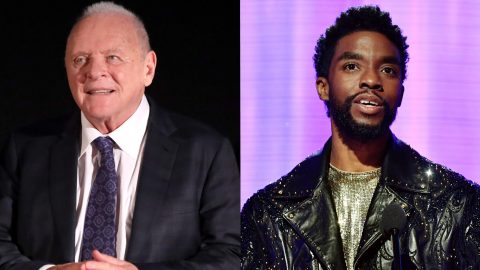
This Moroccan film really captures the way music – hip-hop, specifically – can be used to articulate the harsh realities of marginalised lives. Director Nabil Ayouch was inspired to make Casablanca Beats after rapper Anas Basbousi launched a popular hip-hop programme at Les Etoiles, the cultural centre Ayouch co-founded in the deprived neighbourhood of Sidi Moumen. Ayouch’s film, which features a cast of non-professional teens playing fictionalised versions of themselves, offers a vibrant and sometimes inspiring account of the programme’s success – though his narrative sadly lacks focus. It’s a disjointed jam that would probably work better as a polished bop.
The film begins with Anas pitching his hip-hop programme to the cultural centre’s sceptical director. After he gets his way, early scenes show him taking a tough-love approach with students by calling out any hint of inauthenticity in their lyrics. Evidently it works, because the students are soon hooked on hip-hop and determined to do better. Ayouch underlines the fact that hip-hop gives these kids a much-needed creative outlet by showing glimpses of their home lives. Nouhalia uses music to assert herself in front of hostile female peers, while Meryem is reprimanded by her older brother for wanting to perform at all. Sadly, many of these scenes are as thinly drawn as Anas’ own backstory, which makes it difficult to connect with characters who could be engaging. For this reason, the film’s emotional beats don’t hit as hard as its musical ones.
Casablanca Beats also includes some thoughtful group discussions exploring the ways in which religion, feminism and self-expression intersect in a Muslim society that remains fundamentally traditional. Anas’ message to his students is trite but undeniable: only by speaking their truth can they begin to make things better for themselves and their community. Frustratingly, these compelling moments are bookended by some clumsy narrative jumps. When the kids suddenly decide to put on a concert, it feels jarring because there’s been no previous hint that this is what they were working towards. Still, there’s no doubting that Ayouch captures the angry consternation of some Sidi Moumen locals who object to seeing young women take to the stage.
Despite the prevailing vagueness, Ayouch manages to give his story a rousing and cinematic finale. There’s a lot to like about this film, especially its clear empathy for the characters and some stylishly choreographed dance scenes, but it’s hard not to wish Ayouch had punched up his plot the way the students punch up their rhymes. To borrow a songwriting term, too much of Casablanca Beats doesn’t quite scan.
Details
- Director: Nabil Ayouch
- Starring: Anas Basbousi, Nouhaila Arif, Ismail Adouab
- Release date: April 29 (in cinemas and on Curzon Home Cinema)
The post ‘Casablanca Beats’ review: hopeful hip-hop drama warms the heart appeared first on NME.







